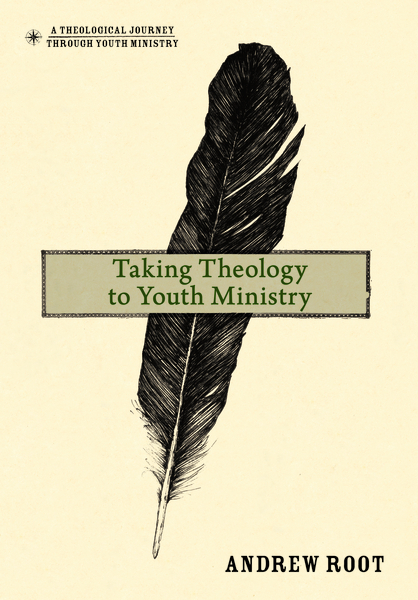[vc_row][vc_column width=”1/1″][vc_column_text]
 Author: Thomas E. Bergler
Author: Thomas E. Bergler
Reviewed by: Stephen Yates, Pastor for Youth & Families at University Presbyterian Church in Las Cruces, NM.
Shifting in response to both fluid adolescent culture and fluctuating church support, youth ministry as a field often struggles to hold onto a cohesive identity, not unlike the adolescents it serves. One welcome development in light of this in recent years has been a newfound interest in the history of ministry to young people by historians and practitioners alike, who are humbled, encouraged, and inspired by a history that pushes back against the tyranny of the ‘new’ with faithful innovation and honest struggle. The Juvenilization of American Christianity by Thomas Bergler stands in this tradition by covering informative and unique content, as well as offering a biting critique of American Christianity that youth worker and senior pastor alike must wrestle with.
Beginning his discussion of modern youth ministry in the fallout of the Great Depression and buildup to WWII in America, Bergler charts the development of the field in a number of denominations and movements across America, including the Roman Catholic Church, mainline Protestant denominations, the widely successful Youth for Christ movement, and various African-American denominations. While Bergler’s text will likely be compared to colleague Mark Senter III’s massive work When God Shows Up: A History of Protestant Youth Ministry in America by those looking for a definitive history of modern youth ministry, Bergler’s broad focus beyond evangelical Protestantism is a highlight of the book. Readers are thus able to explore connections such as those between youth ministry and the cultural upheaval of the 1960s, including participation in the civil rights movement and struggle over changing moral norms, or view the wide-sweeping fallout of the Catholic Church’s Vatican II church council from a next-gen ministry lens.
Strangely, where Bergler both succeeds most strongly and fails most deeply is in the book’s final chapter. Critics of Bergler’s work will note that he actually fails to cover much history past the 1960s, making the book far from the definitive history many will desire to read. Instead, The Juvenilization of American Christianity emerges in its final chapter as a polemic work. Bergler’s discussions of history are in service of his key argument – that while it was a good thing for youth ministry to develop in the United States and elsewhere, such a development has unwittingly become a poison to the American church. Bergler argues that instead of simply providing a developmentally appropriate point of ministry to youth, the evolution of youth ministry in America has redefined what Christianity as a whole should look like, transforming a robust, orthodox faith into a superficial quest for a ‘feel-good’ spiritual high that must continually and progressively compromise to draw people in.
Ultimately, Bergler’s critique is likely valid. Many cite the explosion over the past decade of young, trendy churches filled with late adolescents who failed to find a place in older, historic churches as evidence that instead of helping American teens mature in their faith, be active in their present churches, and prepare to serve churches following their teenage and collegiate experiences, youth ministries have essentially rewired teens to be unable to worship, experience community, and listen to teaching outside of the high-octane, culturally-saturated youth experience. At the same time, readers must be careful to not allow an accurate critique become a battle cry for the elimination of age-specific, developmentally sensitive ministries as a whole, but rather for the re-evaluation and intentionality the field desperately needs.
Bergler’s failure to provide fleshed-out recommendations in service of his critique beyond a few sentences is a striking flaw in this carefully written work. One hopes that this is simply indicative of a coming sequel, or at least that Bergler’s work will motivate others to the careful evaluation and application The Juvenilization of American Christianity makes you long for. However, because the book raises many questions yet offers few answers, readers who would rather study a more thorough treatment of the history of youth ministry must look elsewhere, and may find that simply borrowing the book to read its final chapter, or reading Bergler’s June 2012 cover story in Christianity Today entitled “When Are We Going to Grow Up?” (which summarizes the book itself incredibly well, makes helpful connections to the work of Christian Smith regarding Moral Therapeutic Deism, and offers commentary from frequent CT contributors), more helpful. Regardless, The Juvenilization of American Christianity, in thought or print, is a worthy shot across the bow of our field that should be chewed carefully, an endeavor that hopefully will cause more and more youth workers to move beyond simple ‘how-to’ books to deeply think about our calling to reach teens with the gospel.[/vc_column_text][/vc_column][/vc_row]

 Author: Andrew Root
Author: Andrew Root Christian Education and Publications (CEP) has named Karen Hodge as the next women’s ministry coordinator for the PCA. Hodge assumes the position on Feb. 1, 2014. She is the fourth woman to fill this position, building on the foundation laid by Georgia Settle, Susan Hunt, and Jane Patete.
Christian Education and Publications (CEP) has named Karen Hodge as the next women’s ministry coordinator for the PCA. Hodge assumes the position on Feb. 1, 2014. She is the fourth woman to fill this position, building on the foundation laid by Georgia Settle, Susan Hunt, and Jane Patete.